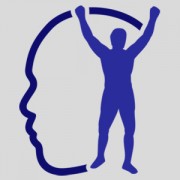MESSAGE #1377 MINDFULNESS EXERCISE
You hear a lot of people talking about staying in the present moment in sports and life, but when was the last time someone taught you HOW to stay in the present moment?
Here is a mindfulness exercise you can use and practice to help you be more present-minded on and off the court.
1. Notice your posture—are you sitting up, slouching over or leaning back?
2. Notice the area within a five foot radius around you—perhaps there is a desk, pens, paper, your couch, a cup of coffee, etc.
3. Now notice what sounds are present—you may hear people talking, a television, or complete silence.
4. Notice the colors around the room you are in—really notice them.
5. Finally notice your breath—is your breathing deep or shallow? Are you breathing from your stomach or your chest?
How do you feel? If you are like most people, you feel more aware and present. Did you notice that when you were performing that mindfulness exercise there were very little other thoughts going on in your head?
That’s the key to peak performance—focusing on the task at hand. The more you practice being mindful, the more likely you will do it when you need it most.

